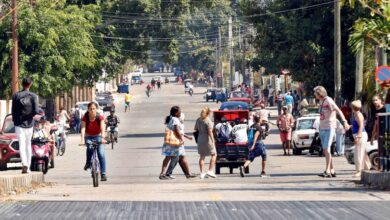“Paradise Papers”: is Latin America involved?
18 months after the filtering of the Panama Papers, there seems to be a new leak affecting the region

Leer en Español: “Paradise Papers”: ¿Qué pasa en América Latina?
The most recent leak made by the International Consortium of Investigative Journalists (ICIJ) is the Paradise Papers. This brings to light millions of dollars that move around in tax havens and that involve public figures, as well as entire companies.
The filtration adds more than 13 million documents, mainly from the law firm Appleby, which has its headquarters in the Bermuda Islands. The other firm involved is Asiacity Trust, which is based out of Singapore, but has subsidiaries in Bermuda, the Cayman Islands, Lebanon, and Malta.
Singers like Bono and officials from the closest circle of United States President Donald Trump and Canadian Prime Minister Justin Trudeau have been splashed. Latin America was not the exception.
In Latin America, the Paradise Papers have sprinkled all. In Argentina, Finance Minister Luis Caputo is related to a fund manager of which he was the administrator of. Caputo defends himself by saying that he was only an administrator and never had direct participation in the company.
Colombian President Juan Manuel Santos has also been linked, as his name appears as the director of two companies based out of Barbados. Santos has stated that he participated in these companies because of his interest in the subject of education, but that he never contributed money to them.
In the case of Mexico, those involved are mainly businessmen, including tycoon Carlos Slim. However, there is nothing illegal in their actions, as Slim used Appleby to establish a company in the Cayman Islands in order for it to be used as a neutral point to connect all his companies.
Venezuela, Costa Rica, Peru, El Salvador, and Chile also appear within the documents. Venezuela draws attention because the company involved is PDVSA, which made contracts with Navigator Holdings involving the Secretary of Commerce of the United States.
Lucas Chancel, co-director of the Laboratory of World Inequalities of the Paris School of Economics, affirms “Everyone, in fact, has the right to create an offshore company, as long as the benefits are declared. Normally, this type of companies is created however in States with low taxation, known as tax havens “. Another lawyer, Jack Blum, who has worked for the US Congress, says that, while Appleby has shown that there are no undue moves, “if it compromised the privacy of his clients with the leaks, and now these characters will have to think twice with whom to establish fiscal connections”.
Latin American Post | Carlos Eduardo Gómez Avella
Copy edited by Susana Cicchetto





